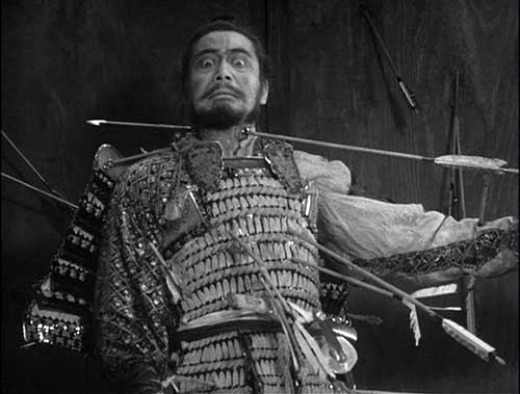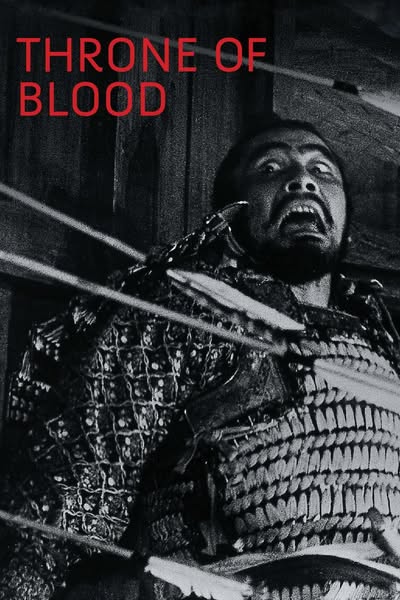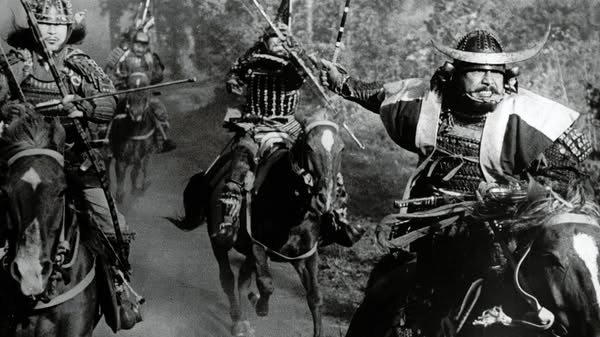Throne of Blood (1957)

“Throne of Blood,” directed by Akira Kurosawa and released in 1957, is a masterful adaptation of William Shakespeare’s “Macbeth,” reimagined within the context of feudal Japan. This film is a stunning blend of classic literature and Japanese cinema, showcasing Kurosawa’s exceptional storytelling and visual artistry.
Set in the 16th century, the film follows the rise and fall of Washizu (played by Toshiro Mifune), a samurai who encounters a mysterious spirit in the forest. The spirit foretells his ascent to power, igniting his ambition and leading him to usurp the throne of the ruler he serves. Alongside his ambitious wife, Asaji (Isuzu Yamada), Washizu’s journey is marked by betrayal, guilt, and the supernatural, mirroring the themes of fate and ambition found in Shakespeare’s original play.

Kurosawa’s direction is characterized by striking cinematography and powerful imagery. The use of fog, shadows, and stark landscapes creates an eerie atmosphere that enhances the film’s themes of inevitability and doom. The battle scenes are expertly choreographed, blending traditional samurai action with a dramatic, theatrical flair that elevates the tension and stakes.

Mifune’s performance as Washizu is captivating, embodying the character’s transformation from a valiant warrior to a paranoid tyrant. His descent into madness is portrayed with intensity and nuance, making Washizu a complex and tragic figure. Yamada’s portrayal of Asaji is equally compelling, showcasing her as a manipulative force driving Washizu towards his dark fate.
“Throne of Blood” also delves into the psychological aspects of ambition and power. The film examines the consequences of unchecked ambition and the moral dilemmas faced by its characters, making it a timeless exploration of human nature. The supernatural elements, including the prophetic spirit and the haunting imagery, further emphasize the themes of fate and destiny.

Overall, “Throne of Blood” is a cinematic triumph that stands as one of Kurosawa’s greatest works. Its innovative reinterpretation of Shakespeare’s “Macbeth” through a Japanese lens, combined with exceptional performances and stunning visuals, solidifies its place in film history. The film remains a powerful exploration of ambition, guilt, and the inexorable nature of fate, making it a must-see for both fans of classic literature and cinema alike.











